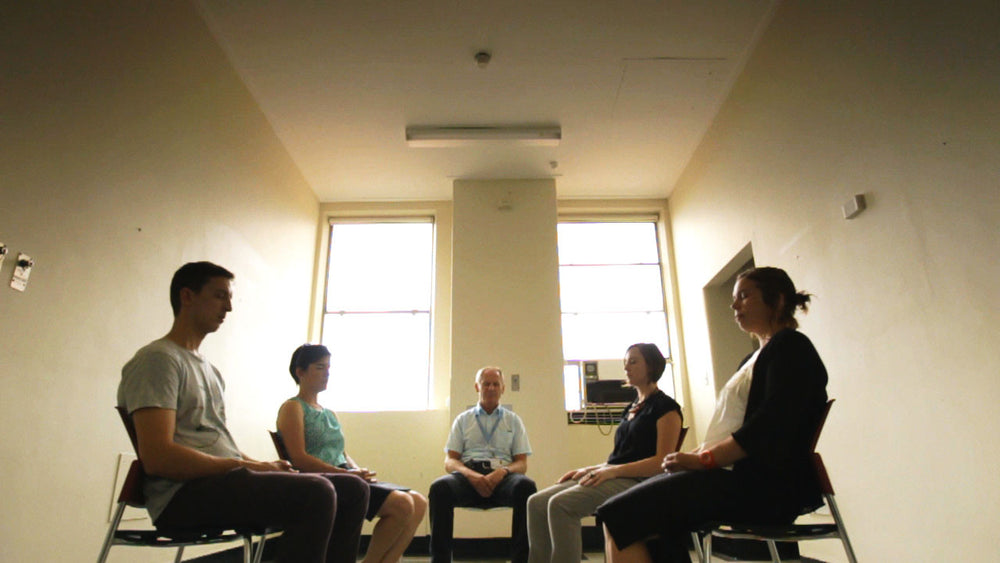
My team and I sat down around our meeting table. Things have been crazy to say the least. We’ve been running on fumes for months as we prepared for the release of the film last week. We needed something to give us a boost to get through the day because although the film is now released and most of our teething issues are solved, we still have a lot of work to do.
We’ve been calling it launch lag. It’s a bit like jet lag. The feeling of going around the clock, building to something big and then once it’s been achieved having a sense of a being a little flat. Now that the film is out, we’re in a whole new time zone. No amount of caffeine can touch it. So today instead of sitting down for a meeting, we sat down for our first group 11am ‘sit.’
It’s an idea I’ve taken from The Center for Mindfulness in Medicine and Healthcare at the University of Massachusetts Medical School, which is an organization founded by Dr. Jon Kabat-Zinn, one of the experts who appears in The Connection. I visited the CFM a few weeks ago when we had our US premiere of The Connection and was invited to join them for their daily ‘sit,’ where every day at 11am, one of the team leads whoever wants to join them in a mediation. Sometimes it’s 5 people. Sometimes it’s 15 people or more. I also saw this in practice when I was filming with Professor George Jelinek who appears in the film after his remarkable recovery from MS. He meditates with his staff at St Vincent's Hospital in Melbourne.

The science of the impact of meditation in the work place is compelling. For example, a small randomized clinical trial conducted by a research team led by Dr. Richard Davidson from the University of Wisconsin-Madison showed a short program in mindfulness meditation produced lasting positive changes in the brain and the immune system of participants.
The study was done using staff working at a biotechnology company called Promega who received training in mindfulness meditation from Dr. Kabat-Zinn. Interestingly, the meditation group showed changes in their brain associated with lower anxiety and a more positive emotional state. They were also given a flu vaccine at the end of the eight-week meditation program and blood tests revealed that the people in the meditation group had a significantly larger antibody increase in their immune system than people not in the meditation group.
Remarkable findings like this go a long way to link the state of our mind with our health. Here is a video of Dr. Kabat-Zinn taken from the interview I did with him talking about the study.
Other studies on the impact of meditation in the work place show that it helps people improve memory, become more focused and productive, as well as reduce stress levels, sleep better and have a more regular heart rate. As I sat down to lead my team in our first ‘sit,’ I felt a little shy. I wondered if they would think it was stupid. But we’re all a bit run down with sore throats, sore muscles and fatigue. We needed a circuit breaker and I knew I had science on my side.
The mood in the team before and after our simple 10-minute meditation was noticeable. We had all been caught up in our endless ‘To Dos’ and sitting down to meditate together somehow brought us into a communal present moment. There was a sense of calm and a sense of togetherness. We all went back to our computers with a little boost. Better than a hit of caffeine.





 The Connection (DOWNLOAD-TO-OWN)
The Connection (DOWNLOAD-TO-OWN) My Year Of Living Mindfully - Book
My Year Of Living Mindfully - Book




